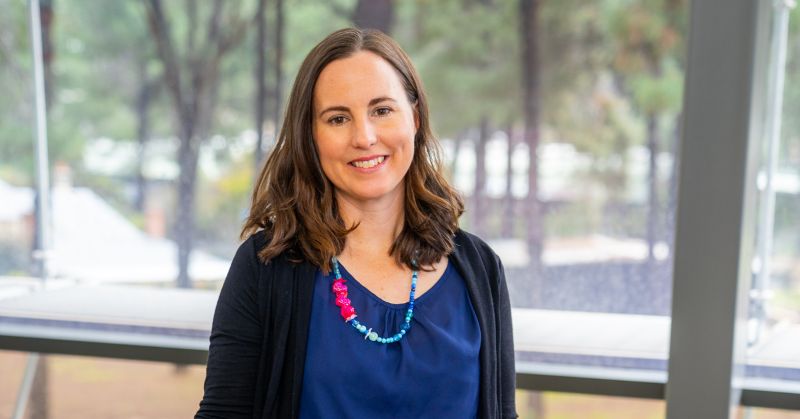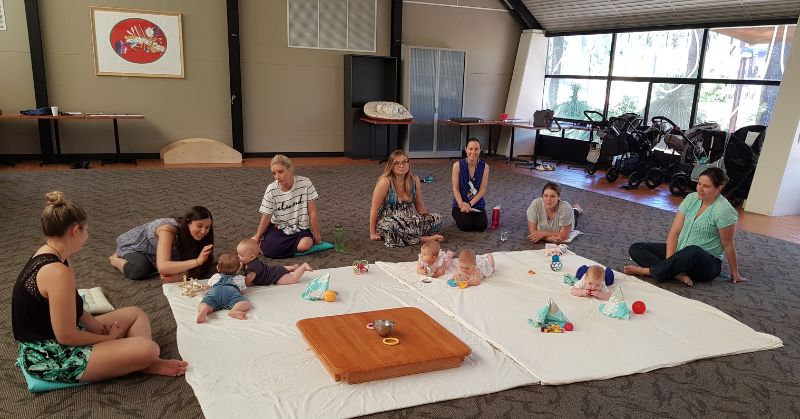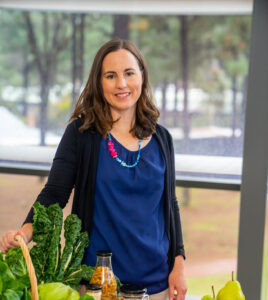It’s well known the first year of life is vital for a child’s development, but can also be one of the most stressful periods for parents.
It’s a time of many challenges for parents: teething, potential sleep issues, rapid growth, shifting to solid foods, developing relationships and more.
However, despite the importance and difficulty of this period, parents say there is very little support when their babies are between 4 and 12 months old, as there are no scheduled child health nurse visits during this time.
With support from Channel 7 Telethon Trust funding, researchers from Edith Cowan University’s Nutrition and Health Innovation Research Institute (NHIRI) researchers are investigating how parents and their babies can best be supported during this critical time with its Happy Parenting Program.
The team will be working with families from the ORIGINS Project, a collaboration between Telethon Kids Institute and Joondalup Health Campus, but is also also broadening the study to invite families from the community.
Researchers are investigating different types of supports for parents, including the Respectful Approach, which focuses on developing a cooperative relationship between child and parent by encouraging caregivers to treat their infants as capable and independent.
Lead researcher, ECU’s Associate Professor Therese O’Sullivan, said preliminary data had shown this method significantly lowers parents’ stress levels and increases parenting confidence in as little as six weeks.

“For example, parents have told us that meal times are particularly stressful,” she said.
“Parents often encourage children to finish their plate, use food as a reward, or allow distractions such as electronic devices – this interferes with the child’s ability to self-regulate food intake.
“Our program encourages parents to trust and observe their infant’s cues and view mealtimes as a time to connect, which we predict will help develop healthy eating behaviours and cause less stress for parents.”
Stressful environments matter
A stressful household doesn’t just negatively impact parents’ quality of life – it can also negatively effect children, even in their first year of life.
In the first few years of life, children’s brains are developing rapidly and are particularly sensitive to environmental influences.
While learning how to cope with mild stressful events is an important part of healthy child development, Professor O’Sullivan said it had to be in the right environment.
“When young children experience stress in the context of supportive relationships with their parents, physiological effects such as increasing stress hormones, heart rate, muscle tension and blood pressure, are cushioned and return to normal levels relatively quickly,” she said.
“The result is the development of healthy stress response systems.
“However, if a young child is living in a chronically high stress environment without a safe and dependable relationship with their caregiver, healthy development can be derailed, resulting in detrimental effects on learning, behaviour, and health across the lifespan.”

Looking for help?
Channel 7 Telethon Trust will provide NHIRI’s researchers with $118,000 in funding to test the effectiveness of different types of parenting support.
The team is looking to recruit families with babies up to six months of age to take part in weekly parenting workshops, for two sets of eight-week blocks.
Professor O’Sullivan said the study would focus on children’s health and the impact their family’s socioeconomic background can play on household stress.
“We particularly want to discover whether the intervention can improve children’s stress levels, behaviour, and development,” she said.
“Further, we aim to determine whether children from disadvantaged families benefit more from the intervention than children from advantaged families.
“The results of this project will provide valuable information on the potential role of early parenting in reducing risk of childhood diseases, particularly obesity and anxiety, through stress reduction and relationship building.
“Supporting families early in their parenting journey may help parents develop a respectful and dependable relationship with their children from infancy, giving children the best foundation to grow from.”
The Happy Parenting Program will offer free workshops to the general community after the Easter break.
Parents who are interested in taking part with their babies can find more information at the Happy Parenting Program homepage.






